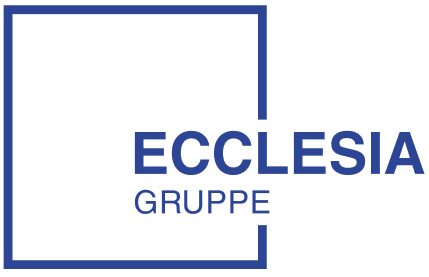
Interview with digital expert Sascha Lobo
Artificial intelligence is on the rise and is also opening up completely new possibilities for our customers in the health and social services sector. Digital entrepreneur and AI expert Sascha Lobo was already a guest keynote speaker at this year's future congress “Managing Social Services” in Essen. This was jointly organized in June by the Evangelisches Johanneswerk, Curacon and the Ecclesia Group. After Sascha Lobo highlighted the many possible applications of AI in his keynote speech, he now explains in an interview where potential can be leveraged and how the players in the health and social services industry should proceed.
In which areas of health and social services does artificial intelligence (AI) offer potential?
In almost all of them, because AI is, among other things, an efficiency tool for work processes of all kinds and also a knowledge tool that can be used to gain completely new insights. This ranges from new diagnostic procedures, such as disease detection based on the voice or thermal images of the body, to support for nursing care through AI assistants with which a real dialog is possible, to everyday office work that can be handled faster and better with the help of AI. Artificial intelligence can be thought of a bit like electricity: it is everywhere at some point and makes things possible that were previously hard to imagine.
Where might health and social care organizations run into problems when implementing digitalization, and what should they bear in mind?
Unfortunately, the EU's AI Act, the AI Regulation, is a real obstacle, especially in conjunction with the General Data Protection Regulation (GDPR). As a result, many institutions lack the courage to try out what is possible with AI projects. However, it would be necessary to develop a culture of trial and error now. It should be borne in mind that AI is above all an educational issue and will become even more so, especially with regard to vocational training and continuing education.
At the Zukunftskongress “Sozialwirtschaft managen” (Managing the Social Economy) you made an appeal to the audience: get on with it! How should those involved proceed?
First of all, it's about gathering and structuring knowledge about AI, especially for your own industry. With a certain basic knowledge, you can then start looking for partners, whether they are consultants, agencies, employees, freelancers, cooperation partners or even competitors. It depends very much on the area and the goal. And then you should think very carefully about how and where you can get a specific, not too large project off the ground. This could be, for example, accelerating, improving or automating recurring work processes in the office. In the course of the first test project, you will learn a lot about how your own organization deals with AI. You can successfully build on it or give up in exasperation; most of the time it is something in between.
Since the social economy and the healthcare sector generally lack the financial resources and expertise to implement digitization projects, the question arises as to whether the large tech companies should show solidarity here. What do you think?
In my view, solidarity is something that takes place between people and is often rather difficult in a corporate context. Of course, there are totally friendly, loving, great corporations, no question about it – but that cannot be the basis of an AI strategy for the social economy and the health sector. In addition, AI applications are no longer as expensive as they were some time ago and a range of services are becoming increasingly cheaper or are available as open-source variants. Know-how can often be used as a substitute for money to some extent. So here, too, it is a question of education and employees. There is no getting around that, and in my view, this is not a legitimate argument either: we have no idea! The internet is an excellent way of bringing knowledge into organizations if you really want to and give it a high enough priority. In this respect, I would say that a great deal can be achieved today with comparatively few resources, and nobody in the social economy needs to rebuild ChatGPT.
Sascha Lobo: born in 1975, works as an author, podcaster, speaker and digital entrepreneur. He writes a weekly column on spiegel.de and publishes books on current affairs. The father of three also regularly appears on talk shows. With his wife Jule Lobo, he hosts the podcast “Feel the News - Was Deutschland bewegt”.
